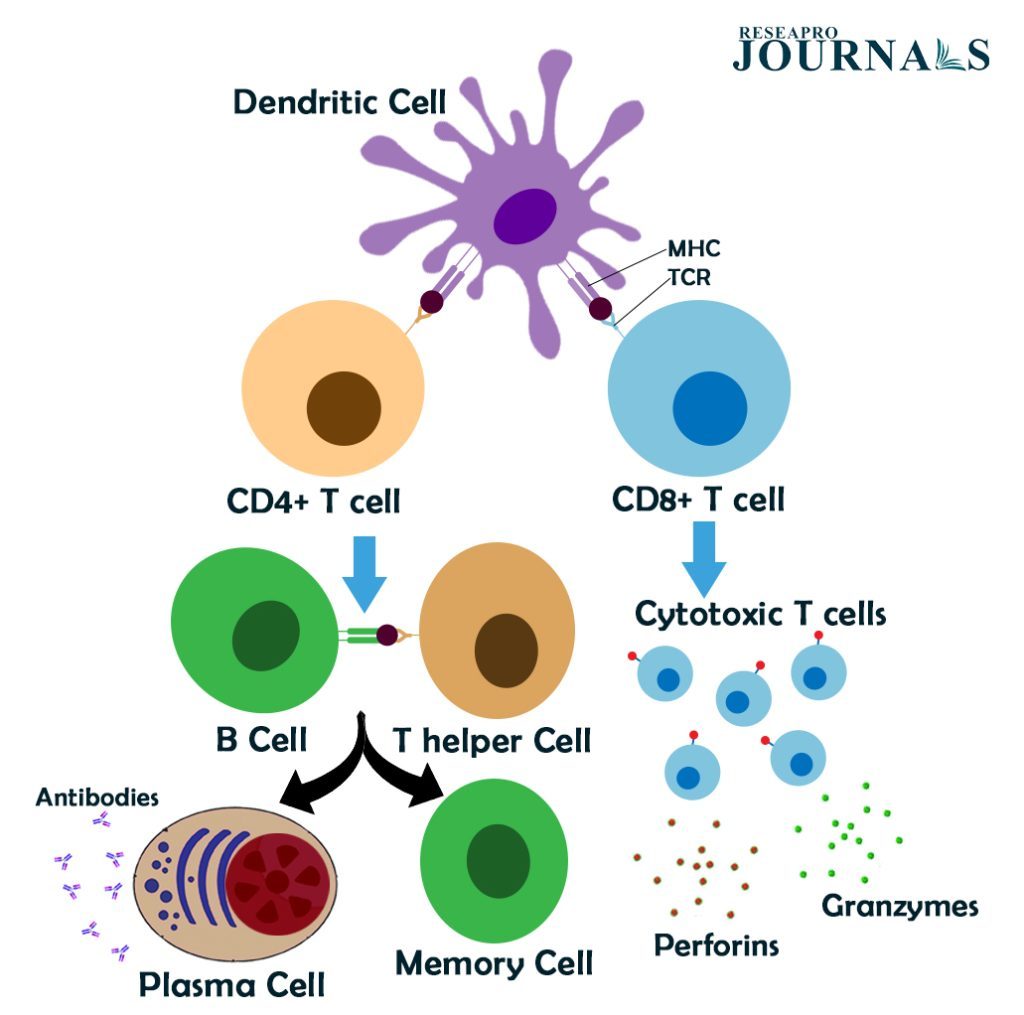|
Getting your Trinity Audio player ready...
|
Dendritic cells are a type of immune cell that play a central role in the adaptive immune response. They are responsible for presenting antigens to T cells, which triggers the adaptive immune response. In other words, they teach T cells how to recognize and respond to foreign invaders.
Dendritic cells are found in all tissues of the body, but they are most concentrated in the skin, lungs, and gut. When a dendritic cell encounters a foreign invader, such as a bacterium or virus, it engulfs the invader and breaks it down into small pieces. These pieces of the invader are then displayed on the surface of the dendritic cell in a way that T cells can recognize.
When a T cell encounters a dendritic cell that is displaying a foreign antigen, the T cell is activated. This activation triggers the T cell to multiply and produce antibodies or other immune cells that can fight the foreign invader.
Dendritic cells are essential for the adaptive immune response. Without dendritic cells, the adaptive immune system would not be able to recognize and respond to foreign invaders. So, it is true that dendritic cells are the “teachers” of the adaptive immune system. They teach T cells how to recognize and respond to foreign invaders, which is essential for our ability to fight infection.




